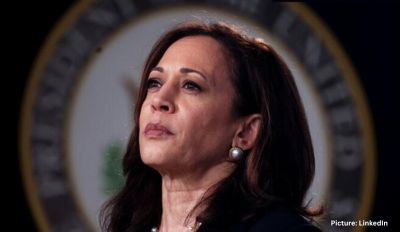Since the US House Vote on Party Lines to begin the process of Impeachment on Donald Trump, the president has shown how he and his allies intend to fight impeachment: with a blitzkrieg aimed at deflecting, distracting and discrediting. What he lacks in coherent strategy, he makes up for in shock and awe. Trump will send in the tanks and take no prisoners.
It appears that most Republicans are still willing to march behind him, not by defending what many see as indefensible – the president’s offer of a quid pro quo to Ukraine – but by throwing sand into the gears of the impeachment process. With the help of Fox News, they are set to intensify attacks on the legitimacy of the inquiry itself, demonising its leaders and sowing doubt wherever possible.
The great unknown is whether the approach will prove as effective as their efforts to undermine the special counsel Robert Mueller’s Russia investigation, potentially boosting Trump in the 2020 election, or the case against him will be so compelling that he will be removed from office or defeated at the polls.
The Democratic allegations at the heart of the ongoing impeachment inquiry are pretty simple: that Donald Trump used the power of the presidency to pressure a foreign government to improperly investigate Joe Biden. Or as Democrat Eric Swalwell of California summarized it on Nov. 7, “Defense dollars for dirt.”
The Republican response, by contrast, has been less straightforward. In the weeks since Sept. 24, when the White House released a rough transcript of Trump’s July 25 call with Ukrainian president Volodomyr Zelensky, the Republican defense has shifted dramatically, from denying the charges and then dismissing that they would be impeachable if true, to denigrating witnesses and evidence and attacking the impeachment process.
Democrats paint the changing defense as evidence of its weakness. Republicans attribute it to another source: disorganization. So far, they say, there’s been little coordination between the White House and Trump’s nominal allies on the Hill about a messaging strategy.
Here’s a look at how the defense of Donald Trump has changed since the impeachment proceedings began.
Since the moment he authorized the release of a transcript, Trump has maintained there was no quid pro quo in his withholding military aid from Ukraine while pushing the country to investigate Joe and Hunter Biden. In a tweet announcing the decision to publish the call, Trump said his conversation with President Zelensky was “totally appropriate,” that he applied “no pressure,” and that there was “NO quid pro quo.”
Trump has continued to chant this mantra at rallies, on Twitter and in interviews — a blanket defense of the core issue at the center of Democrats’ investigation. And it has been echoed by other top members of his Administration. “The transcript of the President’s phone call with President Zelensky… there was no quid pro quo,” Vice President Mike Pence said on Oct. 3. “There was no pressure.” Kellyanne Conway, counselor to the president, Larry Kudlow, Trump’s chief economic advisor, Steve Mnuchin, Treasury secretary, and others of Trump’s top allies have all repeated this line as well.
But this stance has become more complicated in recent days as witnesses have asserted explicitly to House investigators that there was, in fact, a quid pro quo.
“That was my clear understanding,” Bill Taylor, the top U.S. diplomat in Ukraine, testified last month. “Security assistance money would not come until the president [of Ukraine] committed to pursue the investigation,” Taylor continued, according to the transcript of his testimony. On Nov. 5, the U.S. Ambassador to the European Union, Gordon Sondland, revised his original testimony to include that he had passed along such a message to a Zelensky advisor. “I said that resumption of the U.S. aid would likely not occur until Ukraine provided the public anticorruption statement that we had been discussing for many weeks,” Sondland said in a written statement. Some aides have since adjusted their strategy, and been backing away from an unequivocal “no quid pro quo” defense.


